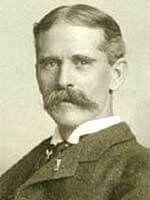-

Who can explain the secret pathos of Nature's loveliness? It is a touch of melancholy inherited from our mother Eve. It is an unconscious memory of the lost Paradise. It is the sense that even if we should find another Eden, we would not be fit to enjoy it perfectly nor stay in it forever.
 0
0
Loading...

Who can explain the secret pathos of Nature's loveliness? It is a touch of melancholy inherited from our mother Eve. It is an unconscious memory of the lost Paradise. It is the sense that even if we should find another Eden, we would not be fit to enjoy it perfectly nor stay in it forever. by : Henry van Dyke
 Doug Horton
Doug Horton


















